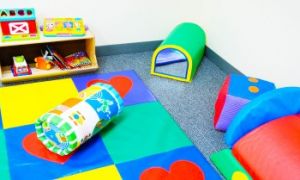

In the wake of child abuse allegations and the rollout of policies like Four Eyes, early childhood educators are being asked to be more present, more vigilant, and more accountable. But presence alone is not enough. True safeguarding requires witnessing—not just watching. To witness is to be emotionally attuned, relationally responsive, and ethically grounded. It means seeing the child not as a subject of supervision, but as a whole person—worthy of affirmation, protection, and care.
In the wake of recent news, early childhood settings face a moral and professional imperative: to go beyond compliance and embed emotionally intelligent, culturally safe practices that truly protect children. This article introduces the Four V’s Framework—Visibility, Voice, Validation, and Vigilance, as a holistic model for safeguarding in early childhood education.
In light of the recent Four Corners investigation and the distressing realities it has brought to the surface, the following is a sample letter to share with families. This letter is designed to offer calm, transparent reassurance while reaffirming your service's commitment to safeguarding every child in your care. This letter may be used, edited, and adapted for your particular service to reassure families that their concerns are valid and their children are safe.
Long Service Leave (LSL) is a valuable entitlement that rewards employees for extended service with the same employer. For early childhood educators—who often work in emotionally demanding, relational roles—LSL offers a chance to rest, reflect, and recharge after years of contribution.
In educational environments, relationships with families are central to building trust, collaboration, and shared responsibility. However, when those relationships become strained, especially through verbal abuse, intimidation, or threats, leaders must act decisively to protect staff well-being and uphold respectful conduct. Aggression from families is not just emotionally damaging—it can compromise safety, morale, and the integrity of the learning environment. Addressing it requires a balance of legal awareness, relational leadership, and clear procedural action.
In early childhood education, the phrase “school readiness” often conjures images of children sitting quietly at tables, practicing handwriting or phonics. But this narrow view overlooks the rich, embodied ways that young children learn. As research and practice continue to affirm, four-year-olds don’t need to sit still to be ready for school, they need to move, explore, and play.
In early childhood settings, the word “no” carries weight. It can signal safety, set boundaries, and teach children about limits. Yet, in some centres, policies now discourage educators from using “no” in any context, sparking debate across the sector. Is saying “no” harmful—or essential? And if we’re not saying “no,” what are we saying instead?
Celebrating Halloween in early childhood settings can be enriching, but it’s important to weigh the benefits and challenges thoughtfully. Here's a breakdown to help guide your decision:
Here’s a playful set of questions you can use during group time to explore children’s understanding of Halloween. These are designed to spark curiosity, storytelling, and cultural reflection, while keeping things warm and inclusive.
In early childhood services, leadership is relational. Whether you're guiding a new educator or supporting a seasoned team member through change, knowing when to coach and when to mentor is essential. These approaches aren’t interchangeable; they serve different purposes, require different skills, and yield different outcomes. This cheat sheet helps leaders distinguish between coaching and mentoring, apply each effectively, and embed both into everyday practice.
 As an Educator in Australia, your pay rate falls under the Children’s Services Award 2010. This award states the minimum amount that an employer can… Read More
As an Educator in Australia, your pay rate falls under the Children’s Services Award 2010. This award states the minimum amount that an employer can… Read More
 When working as a qualified Early Childhood Teacher (with a university degree) within a service, your rate of pay will come from the Educational Services… Read More
When working as a qualified Early Childhood Teacher (with a university degree) within a service, your rate of pay will come from the Educational Services… Read More
 When working as a Diploma Qualified Educator your pay rate is from the Children's Services Award 2010. This Award states your minimum rate of pay… Read More
When working as a Diploma Qualified Educator your pay rate is from the Children's Services Award 2010. This Award states your minimum rate of pay… Read More
 When working as a Cert 3 Qualified Educator, your pay rate is from the Children's Services Award 2010. This Award states your minimum rate of… Read More
When working as a Cert 3 Qualified Educator, your pay rate is from the Children's Services Award 2010. This Award states your minimum rate of… Read More
 Educational Leaders play a crucial role in their early childhood service by ensuring that the educational program aligns with best practices and supports the holistic… Read More
Educational Leaders play a crucial role in their early childhood service by ensuring that the educational program aligns with best practices and supports the holistic… Read More
 In early childhood education and care, ratios are more than a technicality—they are a frontline safeguard. Every child deserves responsive supervision, emotional connection, and developmental… Read More
In early childhood education and care, ratios are more than a technicality—they are a frontline safeguard. Every child deserves responsive supervision, emotional connection, and developmental… Read More
 Here’s a comprehensive Mobile Phone and Smart Watch Policy tailored for early childhood education and care (ECEC) services in Australia, aligned with the latest 2025… Read More
Here’s a comprehensive Mobile Phone and Smart Watch Policy tailored for early childhood education and care (ECEC) services in Australia, aligned with the latest 2025… Read More
 With the new national child safety reforms kicking in on 1 September 2025, early childhood services like yours have a real opportunity to lead the… Read More
With the new national child safety reforms kicking in on 1 September 2025, early childhood services like yours have a real opportunity to lead the… Read More
 The Sea of Fish Challenge is a national initiative that invites children, educators, families, and communities to create and display fish artworks as a symbol… Read More
The Sea of Fish Challenge is a national initiative that invites children, educators, families, and communities to create and display fish artworks as a symbol… Read More
 Across the early childhood education and care sector, educators are sounding the alarm: current staffing ratios are insufficient to deliver safe, meaningful, and developmentally appropriate… Read More
Across the early childhood education and care sector, educators are sounding the alarm: current staffing ratios are insufficient to deliver safe, meaningful, and developmentally appropriate… Read More

Quality Area 3 of the National Quality Standard focuses on the physical environment.
See more...
The following article lists some Common Interview Questions and Tips On How To Answer Them...
See more...
Erik Erikson’s theory of psychosocial development is a great framework for designing activities that support...
See more...© 2009-2025 Aussie Childcare Network Pty Ltd. All Rights Reserved.

